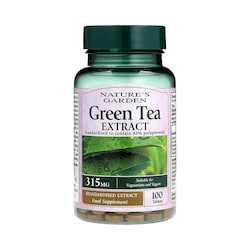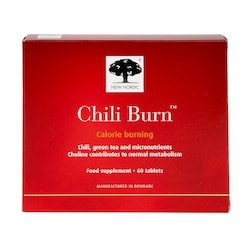20% off £30
Code:QUICK
What is leptin resistance & can it cause weight gain?

Leptin - what is it, what does leptin resistance mean, and can it really make us gain weight? Find out all you need to know about this hormone here.
Have you ever been told that the cure for obesity is simple? Stop eating so many calories and do exercise? If only it was so easy!
It can be frustrating for people to minimise the struggle of weight loss to this ‘simple advice’, as if it was so easy, there surely wouldn’t be so many obese and overweight people trying to lose weight.
There are so many factors that contribute to weight loss and weight gain – and more and more research suggests that the hormone leptin and obesity could be linked.1
Leptin is sometimes referred to as the ‘starvation’ or ‘satiety’ hormone, and it’s possible for your body to be resistant to it. And, when it comes to fat gain, leptin resistance could be a main contender.2
This article will explain what leptin is, what it does, and how leptin resistance could affect weight and weight loss.
What is leptin?
Leptin was first discovered in 1994 and generated quite the buzz in the world of weight loss, with people speculating that it could be the next big thing to help you lose weight.
That’s why it was names after the Greek world ‘leptos’, meaning thin.3
It is an amino acid hormone that our fat cells make and distribute into the blood stream to tell our brain that the amount of energy we are taking in (via food and drink) is adequate.
Circulating leptin hormone levels in the body tell our central nervous system to adjust food intake and energy expenditure accordingly, e.g., by making us feel hungry after that gym session or making food seem less appealing if we have met our ‘appetite quota’ on a less active day.4
Leptin can even affect when we start puberty or our chances of getting pregnant, as the body will ‘consult’ leptin levels to see if it has enough energy to spare for these processes.
Summary
- Leptin is an amino acid hormone that our fat cells produce
- It is distributed around the body and into the brain to help make sure the amount of energy we are taking in matches what we are using
What stimulates leptin?
There are multiple things that can stimulate your production of leptin, including:
- Insulin – a hormone that allows your body to use sugars from food
- Glucocorticoids - steroid hormones, usually used to tackle inflammation
- Serotonin - our mood stabling hormone, aka the happy hormone
- Oestrogen – one of the main female sex hormones
Leptin and dieting
Leptin production and regulation could be significantly affected by dieting.
It is thought that the base level of leptin our body is set by our genetics, meaning that we always have personal leptin ‘threshold’.
If our leptin levels meet or exceed this threshold, our brains are happy to let us go about life as normal – eating food at an average rate and being able to exercise when we want to.
However, when most people diet, they eat less food and their bodies lose some fat cells.
As our fat cells produce leptin, this causes our leptin levels to decrease. This causes the body to react in a very similar way to if we were starving.
Yes, we’ve evolved since then, but our body will still feel like we’re in danger when we reduce our energy intake.
During this perceived starvation, our body will ramp-up several processes to help replenish those leptin levels, including stimulating the vagus nerve.
The vagus nerve runs between the abdomen and the brain; its main job is to monitor and control energy storage.
When you are dieting, your vagus nerve becomes hell-bent on making you consume extra energy to store in your fat and bring leptin levels back up to your personal threshold.
This is one of the reasons why a chocolate you don’t even like that much can become downright irresistible when you’re on a diet, or why once you finally ‘allow’ yourself to have a small portion of ice cream, you end up scoffing the whole tub.
This is just what your vagus nerve wants!
So why do we gain weight if we simply comply to what our bodies want?
In a perfect world, all of our weight issues would be solved by listening to our body and our cravings to restore leptin levels back to their threshold.
But if that was the case, why do more and more people become overweight and obese as the years go on?
One theory is that leptin resistance plays a part.
Summary
- When you diet and reduce your overall fat levels, your leptin levels can also decrease
- This can cause the body to think it is starving and increase your appetite and food cravings
Does leptin burn fat?
Although leptin doesn’t burn fat directly, it could help you lose weight, and therefore fat, by regulating your appetite appropriately.
What happens when leptin levels are high?
People who are overweight or obese typically have very high levels of leptin due to the amount of fat cells in their body.5
When you look at how leptin is supposed to work, it doesn’t make sense that obese people eat so much as their high levels of leptin should naturally limit their hunger.
This is why people question the idea that overweight people should be able to ‘just stop eating’, because it goes against science.
This is where leptin resistance enters the conversation.
High levels of leptin also usually coincide with a condition called leptin resistance.
This is when somebody produces large amounts of leptin, but their brains don’t get the signal to stop eating.
It’s kind of like your brain is starved, while your body is obese.
This phenomenon is similar to how people with type 2 diabetes have insulin resistance – when the pancreas produces large amounts of insulin, but the body does not respond to it in the way it should.
Leptin levels can carry on climbing as people put on more and more weight, too, there doesn’t seem to be a limit.
The link between leptin and dopamine
Leptin also interacts with the reward system in the body by interacting with dopamine production – the hormone that rewards behaviours.

When leptin levels are low, eating food seems even more rewarding than usually, and when they’re high, it should make food less appealing.6
However, if you are leptin resistant, the reward system doesn’t seem to kick in and stop someone eating when leptin levels rise.
It’s like your fat cells are trying to tell your brain that you don’t need any more food, but the message just isn’t reaching it.7
The link between leptin and metabolism
Another thing leptin resistance can cause is reduced energy expenditure.
This is because your body effectively thinks you are starving and wants to conserve as much energy as possible; One way to do this is by reducing the number of calories you burn at rest, resulting in a lower metabolism.8
Summary
- People who are overweight or obese have naturally high levels of leptin due to the amount of fat cells in their body
- Leptin resistance can cause the signals usually sent to supress appetite to be ineffective and cause someone to feel hungry instead
- It can also reduce the number of calories your body burns at rest
What is the difference between ghrelin and leptin?
You may have heard about another hormone related to hunger called ghrelin.
They are both similar in the fact that they influence energy intake and how much food we eat but have slightly different roles.
Leptin - the satiety hormone - takes a more long-term mediative role in what food we consume and can help us to lose weight by supressing our appetite (as long as we are not leptin resistant).
Whereas ghrelin - the hunger hormone - is faster-acting and creates that instant desire to eat, e.g. when our stomach rumbles.9
Summary
- Ghrelin and leptin are both hormones that impact appetite and energy intake, but play slightly different roles
- Leptin plays more of a long-term role in supressing our appetite
- Ghrelin plays a faster acting role and creates the instant urge to eat
What can cause leptin resistance?
Research has found that there are several mechanisms behind leptin resistance, including:10,11
- Elevated fatty acids: having high levels of free fatty acids in the bloodstream, which can hinder normal leptin signalling.
- Naturally high leptin: people can be born with elevated levels of leptin, and this seems to leave them more vulnerable to leptin resistance.
- Inflammation: when your hypothalamus signals inflammation, this may contribute to leptin resistance in animals and humans.
These factors are usually amplified by being overweight or obese.
These people may try to lose weight and end up putting it on again, which would only cause them to become increasingly leptin resistant and create a vicious cycle that’s very hard to break.
What foods are high in leptin?
‘Leptin foods’ do not exist, but there are certain foods, nutrients, and lifestyle factors than can help support healthy leptin production and circulation.
Can you reverse leptin resistance?
Although there hasn’t been enough research into the subject, there are some theories to help reverse leptin resistance.
If you think you may have leptin resistance, one of the best things you can do is ditch the yo-yo dieting once and for all.
Yes, you may lose weight when you diet, but it’s highly likely that you will put it all back on and some when you finish the diet and go back to normal life.
Instead of increasing your potential leptin resistance over time and messing with your metabolism, choosing a healthy balanced diet could help you lose weight sustainably, maintain a healthy weight and improve leptin function in your body.
Feeding your body with healthy fuel when its hungry is the best way to promote normal hunger cues and give your body the energy it needs to exercise.
Even if you don’t have leptin resistance, these healthy tips can support a healthy lifestyle and should have you feeling better from the inside out:
- Increase fibre intake: eating more soluble fibre promotes gut health and helps to keep you feeling fuller for longer, e.g., choosing a bowl of oats over sugary cereal in the morning is more likely to keep you full and satisfied12
- Avoid processed food: processed foods are usually high in fat, calories, salt, and sugar, which are not great for maintaining a healthy weight or gut health13
- Get quality sleep: having enough quality sleep every night helps to support leptin production.14
- Lower triglyceride levels: lowing your refined carb intake can help lower triglycerides that interfere with leptin production.15
- Exercise regularly: taking time to exercise can help you to lose fat, gain muscle, improve your heart healthy and support leptin production.16
- Increase protein intake: making sure you get enough protein a day can help you to maintain healthy weight and muscle mass, which may help with leptin sensitivity.17
What is the leptin diet?
There is an official leptin diet you can follow designed by Byron J. Richards, a board-certified clinical nutritionist and businessman.
Here are the 5 rules of the leptin diet:
5 rules of the leptin diet
- Make sure your breakfast contains 20-25g of protein.
- Don’t eat anything in the 3 hours before you go to bed.
- Eat 3 meals a day, allowing 5-6 hours before every meal, and don’t snack in between.
- Reduce your carbohydrate intake, but not completely.
- Portion control your meals, don’t eat until you feel ‘stuffed’ and stop before you are completely full.
This diet also promotes fibre intake, and promotes eating fresh, unprocessed foods free from soy and artificial sweeteners.
Summary
- There is not a ‘cure’ for leptin resistance, but it is thought that ditching restrictive diets and yo-yo dieting, eating a healthy balanced diet, listening to your hunger cues, and exercising can help reduce it
- Even if these tips don’t directly impact leptin resistance, these are good tips for general health, so it won’t hurt to try them
- You can also give the official leptin resistance diet a go to see if it will help
What are leptin supplements?
Leptin supplements don’t contain leptin.
These formulas usually consist of ingredients that could help to improve how leptin functions in your body or help you to feel full.
There hasn’t been much research into leptin supplements yet, so it is difficult to know if they actually work or not.
The final say
We hope this article has helped you understand leptin and its role in weight loss and health. Here’s a quick summary:
- Leptin is a hormone our fat cells make to let our brain know when we are consuming adequate energy from our food and drink
- It helps us to adjust our energy intake to suit our lifestyles, e.g., it will signal to our brains that we need to eat more if we are exercising a lot and vice versa
- It is thought to affect weight and weight loss, as diets can cause our body to think we are starving, which makes our body produce less leptin and makes us very hungry. Over time this can cause us to yo-yo diet and actually gain more weight over time
- Leptin resistance can also develop, which means that the body stops reacting to leptin and fails to feel ‘full’, which can cause increased food intake and weight gain over time
- Leptin resistance can be caused by having high levels of fatty acids in the blood, inflammation, and simply being obese – as the more fat cells you have, the more leptin will be produced
- There is not a ‘cure’ for leptin resistance, but it is thought that ditching restrictive diets and yo-yo dieting, eating a healthy balanced diet, listening to your hunger cues, and exercising can help reduce it
- You can also try the official leptin diet created by nutritionist Byron J. Richards
The advice in this article is for information only and should not replace medical care. Please check with your GP or healthcare professional before trying any supplements, treatments or remedies. Food supplements must not be used as a substitute for a varied and balanced diet and a healthy lifestyle.
Last updated: 4 November 2021
- https://www.ncbi.nlm.nih.gov/pubmed/25232147
- http://www.sciencedirect.com/science/article/pii/S0026049514002418
- https://www.ncbi.nlm.nih.gov/pmc/articles/PMC2829242/
- https://www.ncbi.nlm.nih.gov/pmc/articles/PMC2829242/
- https://www.ncbi.nlm.nih.gov/pubmed/8532024/
- https://www.ncbi.nlm.nih.gov/pmc/articles/PMC2829242/
- https://www.ncbi.nlm.nih.gov/pubmed/10215564
- https://www.ncbi.nlm.nih.gov/pmc/articles/PMC3104762/
- https://pubmed.ncbi.nlm.nih.gov/17212793/
- https://www.ncbi.nlm.nih.gov/pmc/articles/PMC3319208/
- https://www.ncbi.nlm.nih.gov/pmc/articles/PMC3248304/
- https://www.ncbi.nlm.nih.gov/pubmed/18031592
- https://www.ncbi.nlm.nih.gov/pubmed/19755625
- https://www.ncbi.nlm.nih.gov/pubmed/15531540
- https://www.ncbi.nlm.nih.gov/pubmed/15111494
- https://www.ncbi.nlm.nih.gov/pubmed/11157319
- https://www.ncbi.nlm.nih.gov/pubmed/16002798
- https://www.amazon.co.uk/Leptin-Diet-Your-Take-Charge/dp/1933927283



































